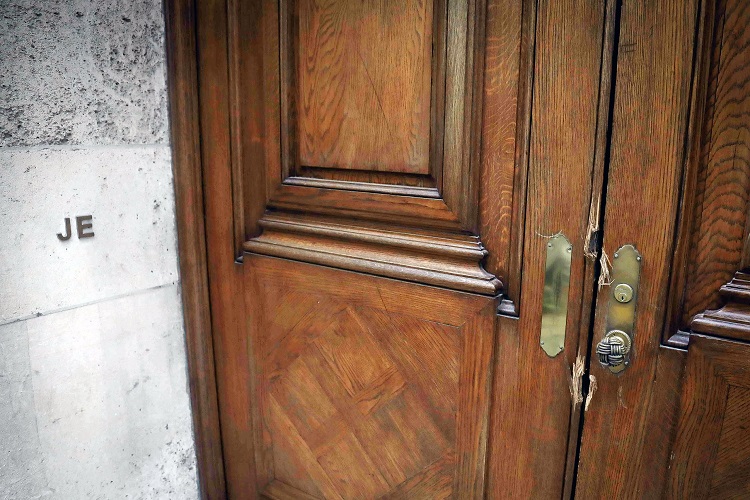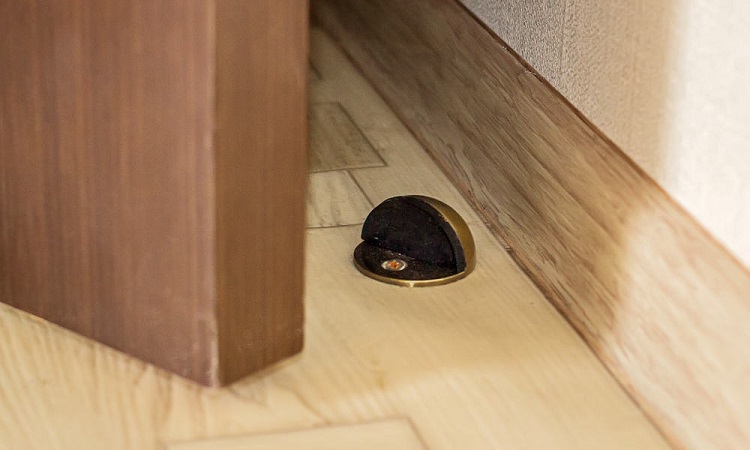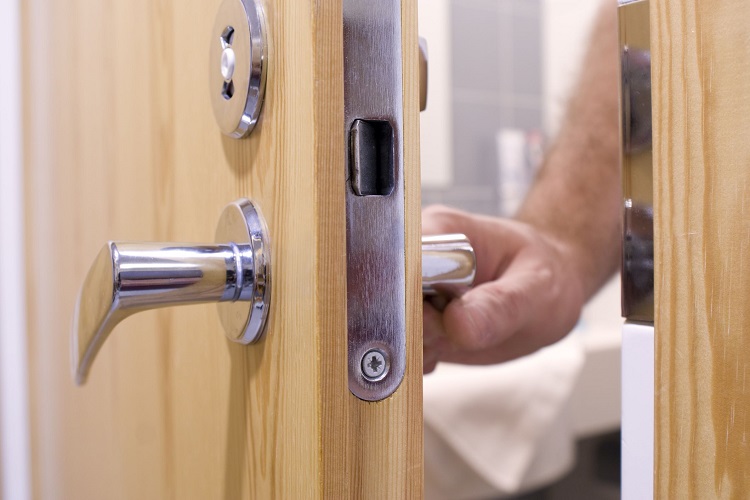There’s nothing as jarring as the sound of a slamming door, and whatever the cause, it can be a major disruption.
If your home is prone to doors being slammed, whether it’s from the wind or an angry teenager, you’ve probably been thinking about possible solutions to make sure it never happens again.
How do you stop slamming doors?
A slamming door can be prevented by using several DIY methods and products designed to secure a door open so it can’t close or smooth the process of closing it.
These include automatic door closers or felt pads that can be applied to the edges, and depending on the type of door you have and how much effort you’re willing to go to, there’s bound to be a suitable solution.
A simple stop slamming door device installed at home can save you the fright of ever having to hear the sound again, and most of them are easy enough to do yourself.
We’re here to look at the potential fixes and devices you can implement to keep your doors smooth, open, and free from noise.
Does Slamming Damage Doors?

The sound of a slamming door gives most people an instant fright, but in addition to being disruptive, it’s also harmful.
The forceful action of a door being slammed can do permanent damage to the door and the parts that connect it to your home, so it’s a problem you want to get on top of right away.
A door that’s repeatedly slammed will start to loosen on its hinges, which then leads to misalignment between the door and the door jamb
The door frame might also get damaged because of the impact, and with both of these combined, you’ll notice the door looking worse for wear and with gaps where they shouldn’t be. It could be more susceptible to break-ins because of its weakened state, so needs to be rectified immediately.
The 7 Best Devices to Stop Door Slamming

Doors that slam are a fairly common problem that people want to fix, so there’s a great selection of devices to prevent this on the market and all of them can be applied yourself at home.
If you’re looking for an easy DIY solution to your home’s slamming doors, check out some of the ways to do it:
Door hinges
Before jumping in with any other DIY approach, check the hinges of your door to make sure there’s no issue there.
Sometimes, an off-kilter hinge can cause the door to slam on its own, and it’s as simple as tightening the screws again to get it back into place. If, after inspecting the hinges, you see the door still looks misaligned, head to the hardware shop to replace them completely.
Felt pads
A felt pad like the kind you use for the feet of furniture and appliances to stop them from rubbing against the floor can also be used to prevent slamming doors.
With a soft felt on one side and adhesive on the other, you can attach felt pads above the handle and lock, one inside of the door frame, and another on the strike plate of the door.
The door will slowly close without slamming and it doesn’t require any technical skills to stick them on.
Doorstopper
Simple Door stoppers like these have been around as long as doors themselves, and while they don’t fix the cause of the slamming, they do prevent it. A door stopper is a simple piece of material shaped like a wedge that you jam underneath the door while it’s open.
The wedge stops the door from moving any further, so even if a huge gust of wind comes through the house, it won’t take the door with it.
Weatherstripping
A weather strip is a piece of soft material that is stuck onto the edge of a door to prevent air from getting in, and it’s also a handy soundproofing device.
Applying weather stripping to the frame of a door will give it a buffer and absorb some of the shock, which means no more noisy slamming.
Weatherstripping has loads of other benefits as well, including keeping bugs and creepy crawlies at bay, so it’s a must-have for every entrance door of your home.
Door silencer
These devices are installed by drilling a hole into the door where the doorstop would go and inserting them into the cavity.
They then sit along with the frame of the door and act as a shock absorber, with the rubber tip of the silencer poking out just enough to prevent the door from slamming shut.
The bonus of this device is that it still allows you to close the door when needed because it’s such a flexible material and only comes out a small amount.
Pinch guard
Pinch guards were initially invented for parents to keep their baby’s and toddler’s fingers from getting pinched and slammed in a door.
These small, curved pieces of foam can be stuck onto any door to prevent it from slamming shut. The only issue with these is that they have to be removed before you can close the door unless you plan on leaving it open at all times.
Magnetic stopper
A magnetic stopper consists of a metal wall piece that’s magnetized, and it’s installed on the wall in line with the door handle.
These devices use a magnetic force to hold the door against the wall so it doesn’t slam, and when you want to close it, you pull on it gently to do so.
A Quiet Door For a Happy Home

With your choice of savvy device or some DIY tips implemented, you’ll bring peace back into your home and get rid of slamming doors.
As one of our most important security measures and a huge disturbance when it gets slammed, getting on top of this problem now will save you from a lot of headaches in the future.
Related Questions
A slamming door is enough to disturb the peace of any home, and whether it’s an unruly child doing it or a sudden gust of wind, you want to put an end to it.
To help you figure out the cause of other noisy issues from your household doors, we’ve answered some FAQs that others have had about them.
Why Does My Bedroom Door Shake?
A shaking or vibrating door can cause a disturbance when you’re trying to sleep, and it’s usually because of the spring-loaded lock not being able to connect to the strike plate of the door.
If your door continues to shake from changes in wind or air pressure in the room, you’ll need to match sure the metal tab on the strike plate is in the right position and able to catch properly.
How Do You Stop a Door From Creaking?
Doors that creak when they open and close are easy enough to fix by lubricating their hinges.
A simple DIY fix to a creaky hinge is to spray some hairspray on it and open and close the door a few times, as it creates a seal around the hinge to prevent noise but also adds some lubrication.
Resources
